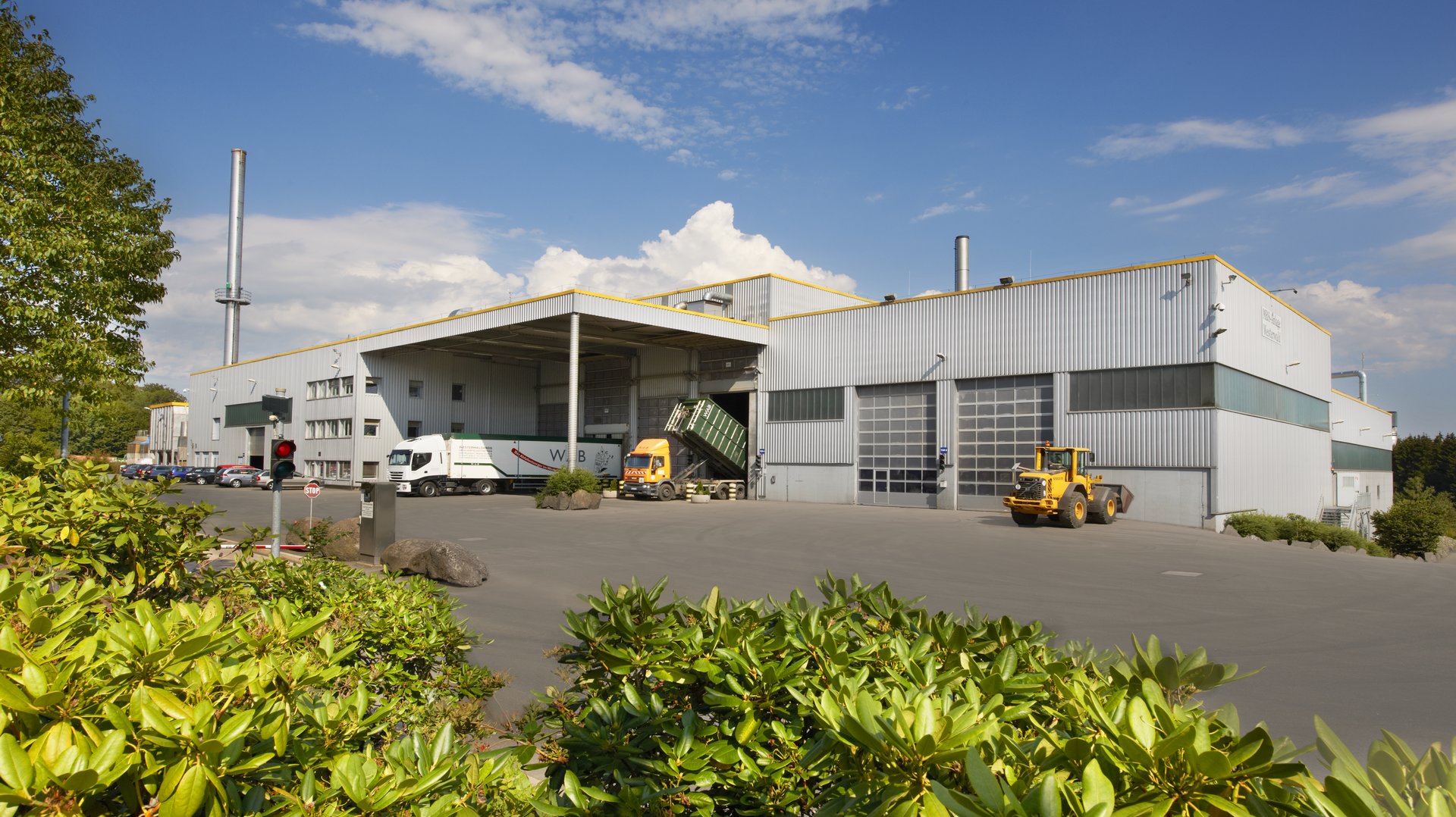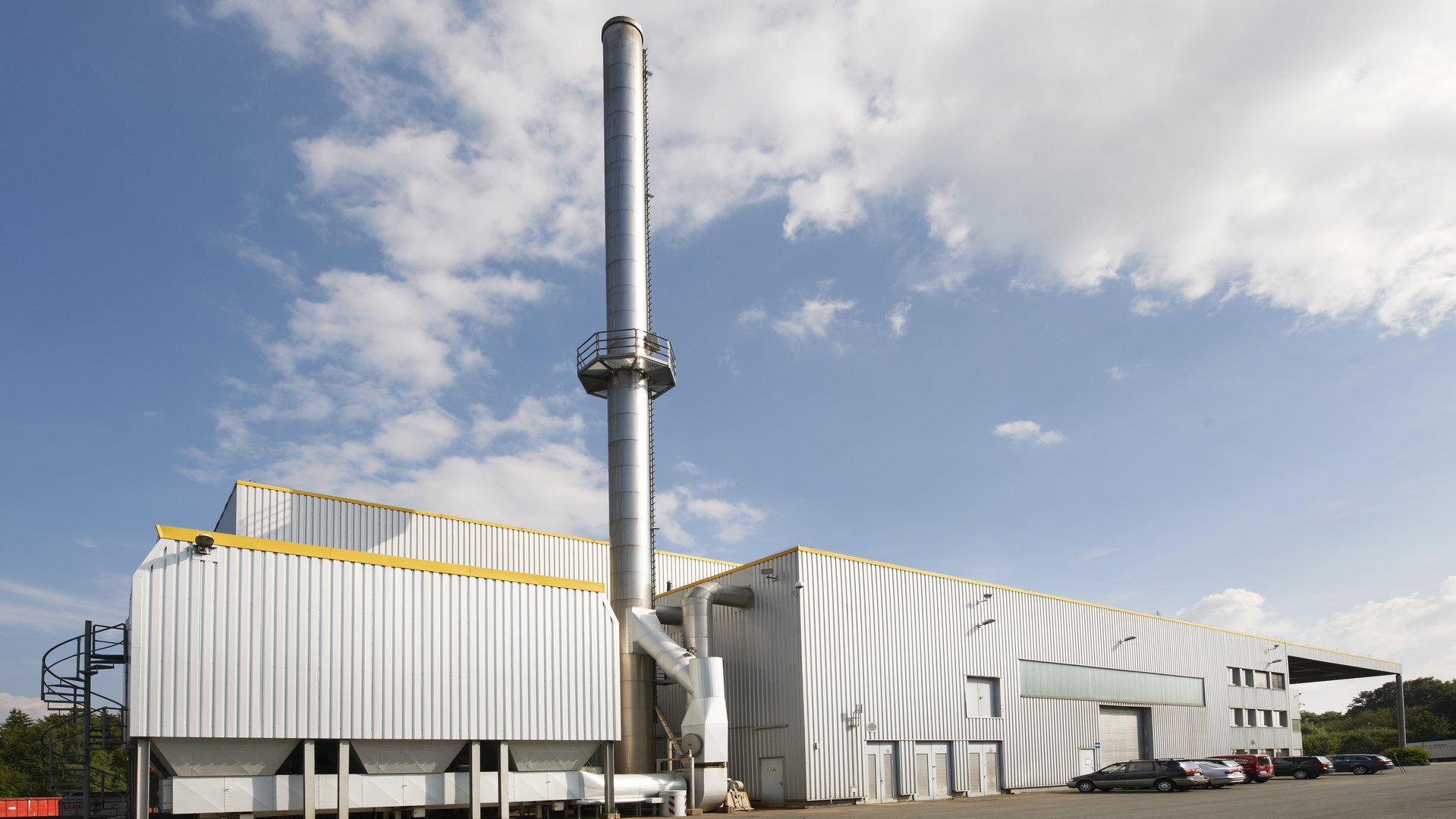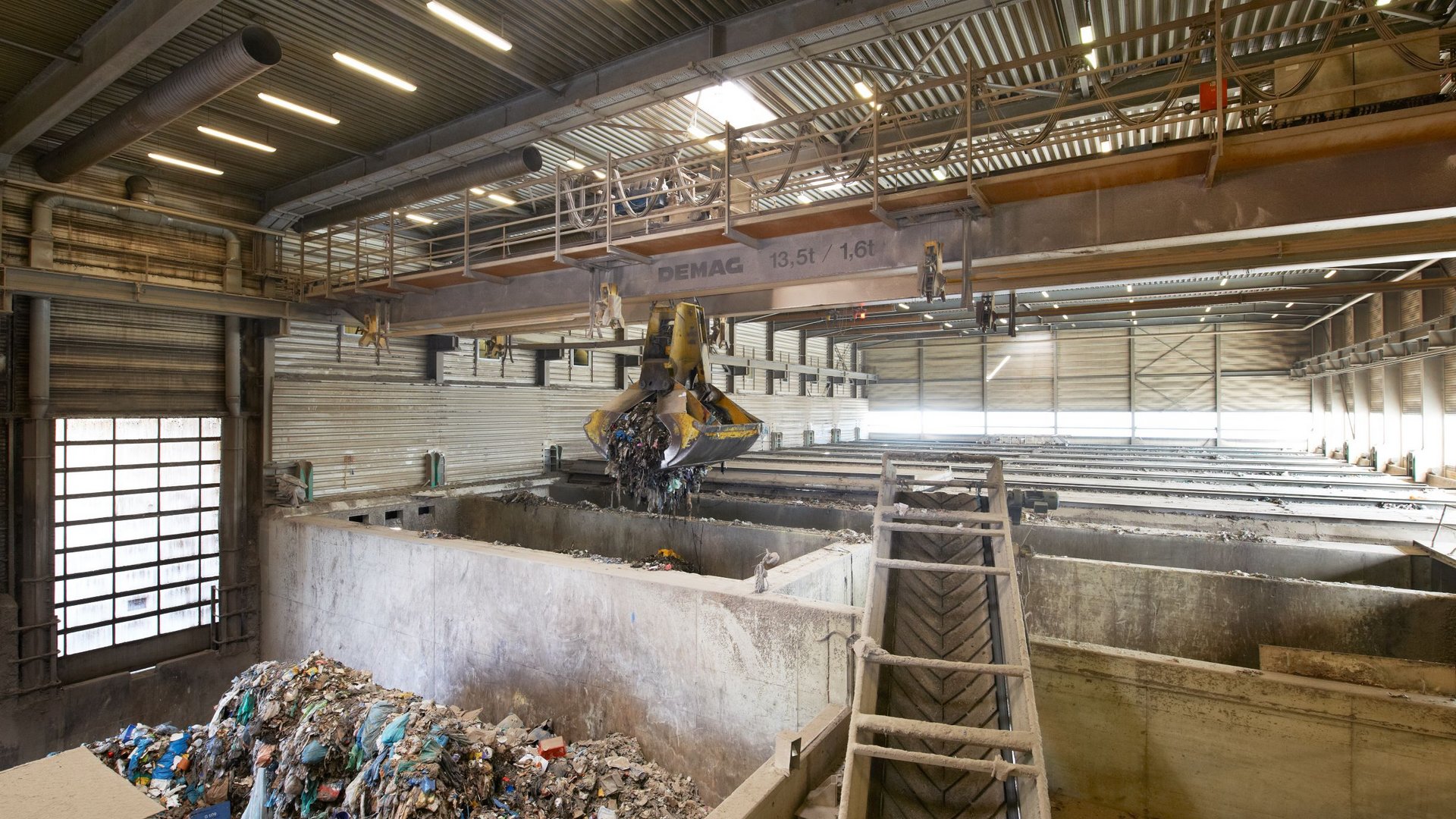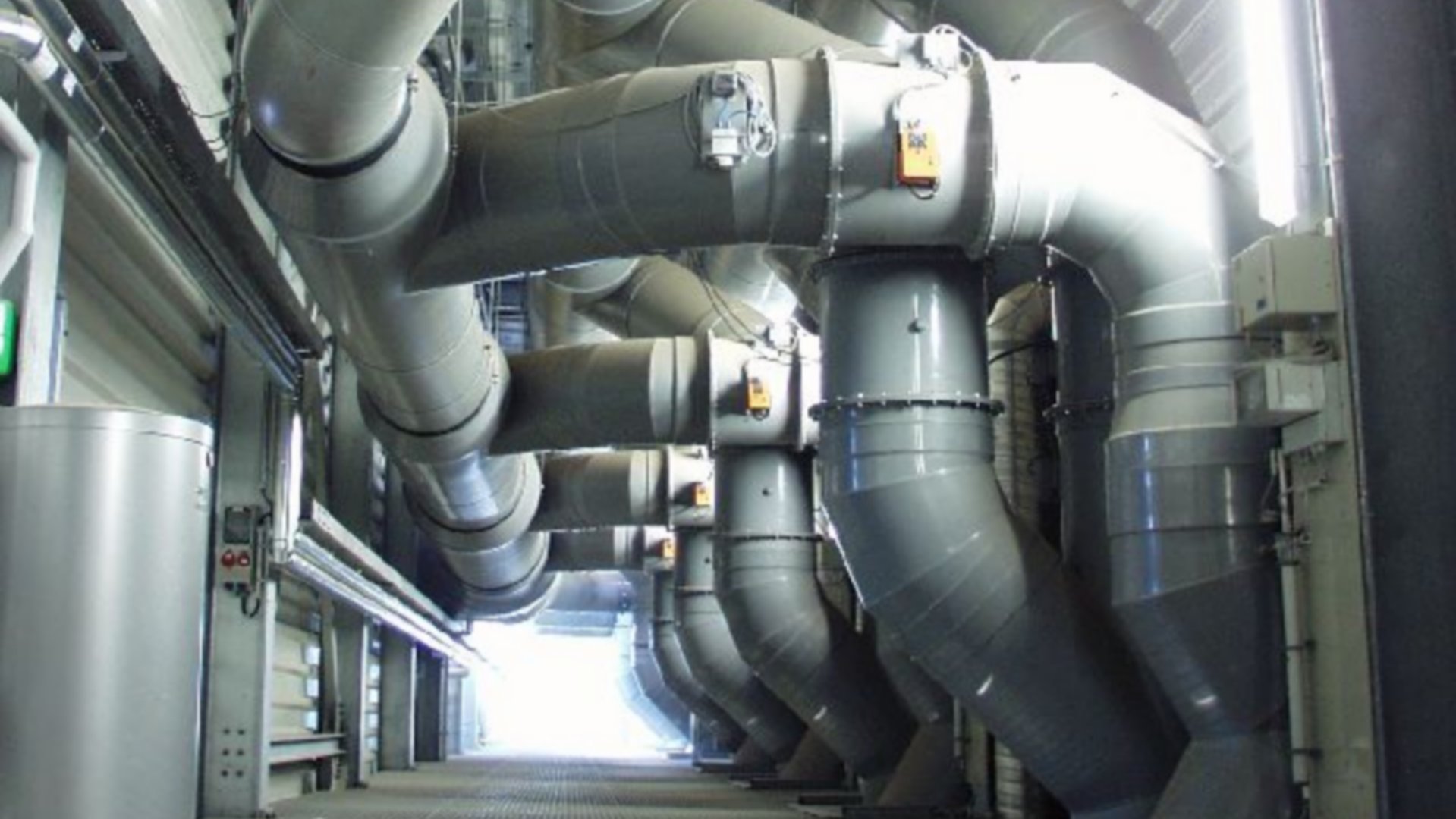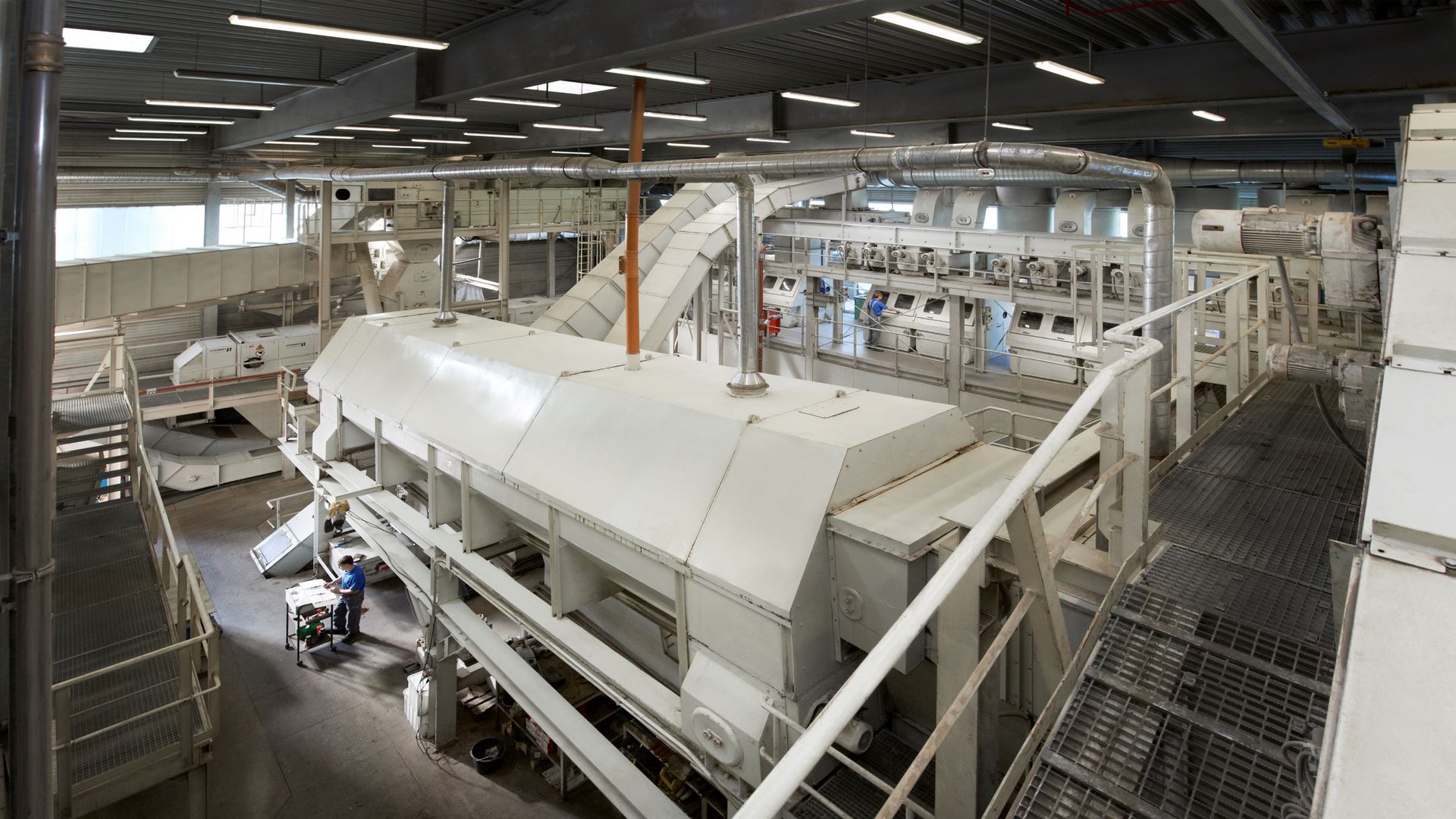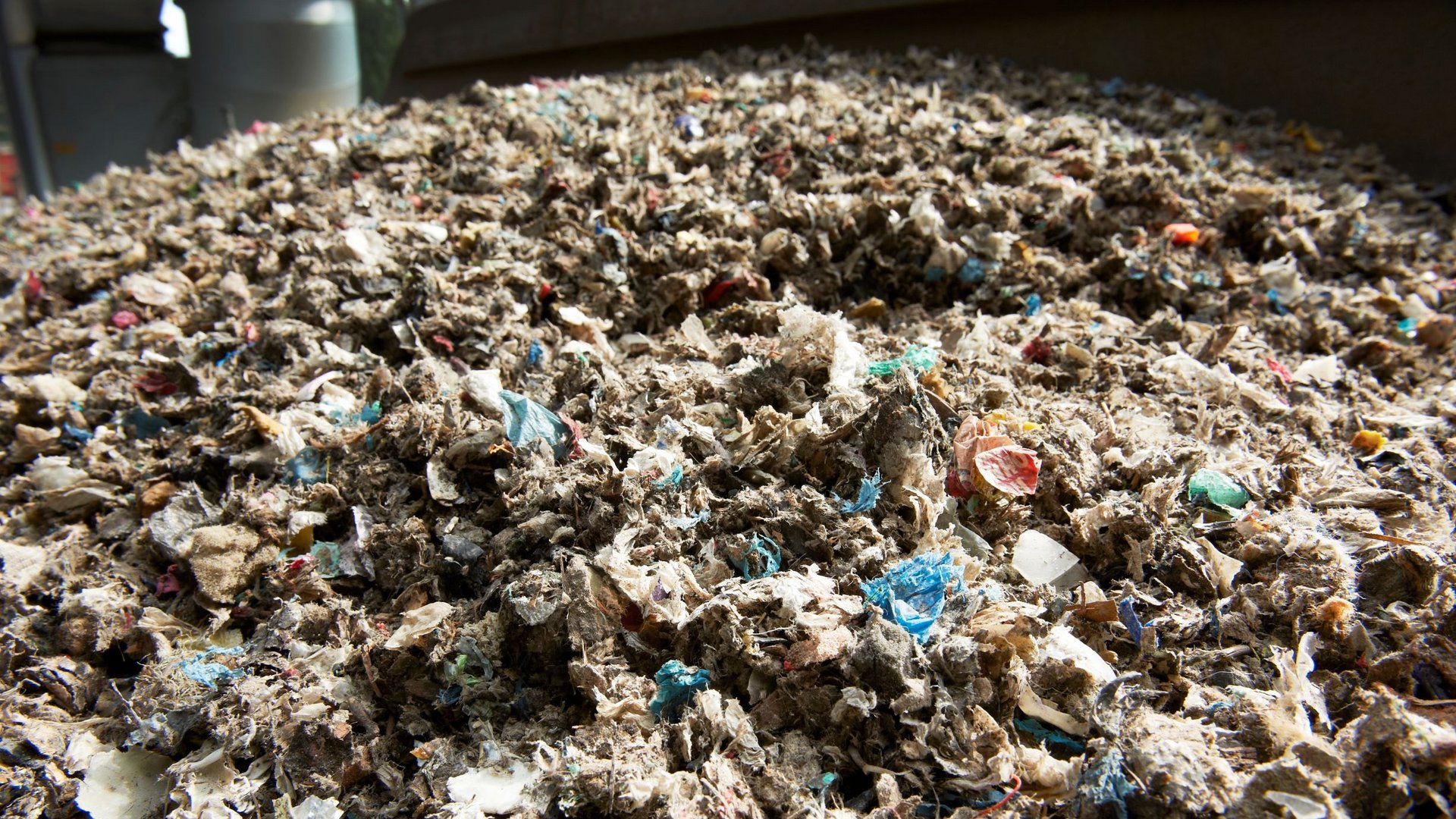| Project type: | Mechanical Biological waste treatment plant (MBA) |
| Location: | Rennerod, Rheinland-Pfalz, Germany |
| Operator: | MBS-Anlage Westerwald GmbH & Co. KG/td> |
| Capacity: | Approx. 400Mg/d (approx. 105.000 Mg/a) household waste and household-type commercial waste (1 line – 8 drying boxes) |
| Focus: | Production of secondary fuel (SBS) |
CUSTOMER
In June 1995, the decision was made by the district council of the Westerwaldkreis to treat the household waste thermaly in future.
REQUIREMENT
In order to implement this decision, a Europe-wide invitation to tender was carried out which permitted a waste incineration plant and a mechanical-biological waste treatment plant (MBT) for the generation of substitute fuel for thermal use of household and bulky waste. In the plant a daily waste quantity of approx. 400 tons was planned to be incinerated or biologically and mechanically processed.
IMPLEMENTATION
The contract for the turnkey construction and operation of a dry stabilate plant (MBA) at the Rennerod site was awarded to a consortium of bidders for a period of 15 years.
The decision was made in favour of the so-called dry stabilate process because it dries all residual waste biologically. In a automated sorting process the waste is separated into recyclable materials (material recycling), substitute fuel (energy recycling) and a minimised deposition fraction. This should ensure that the raw material is recycled as much as possible.
With an annual capacity of 105,000 t (expandable to 150,000 t), the plant started regular operation in April 2000.
Waste Tec GmbH has been a competent partner for optimization and expansion of the plant for many years.
WASTE TREATMENT - THE PROCESS
The approx. 400 Mg/d of household waste is fed into the waste treatment process by a fully automatic delivery crane after it has been received in a deep bunker.
The actual waste treatment begins with a coarse pre-shredding. After an initial metal separation, the pre-shredded waste is temporarily stored in a buffer bunker. A fully automatic process crane fed the pre-shredded waste to one of the eight drying boxes.
Biological drying reduces the input mass by approx. 30 %. In addition to moisture removal, biological mass is also degraded. Drying is essential for the subsequent efficient mechanical sorting and separation of the waste into mentoined fractions.
After the drying process, the waste is fed to the mechanical separation via process crane.
In the first step, the waste is separated into a “coarse” and a “fine” fraction and in further steps into a heavy fraction and a light fraction.
The metals separated in the mechanical treatment process will be recycled and inert materials needs to be deposited.
The recovered substitute fuel consists of materials such as plastics, wood, paper, dried organic material, etc., which account for approx. 50 percent by weight of the raw waste.
This can be processed loosely or into soft pellets for further application in the market.

